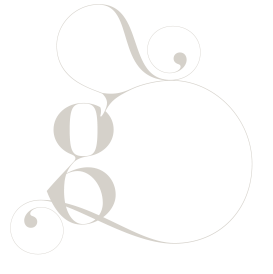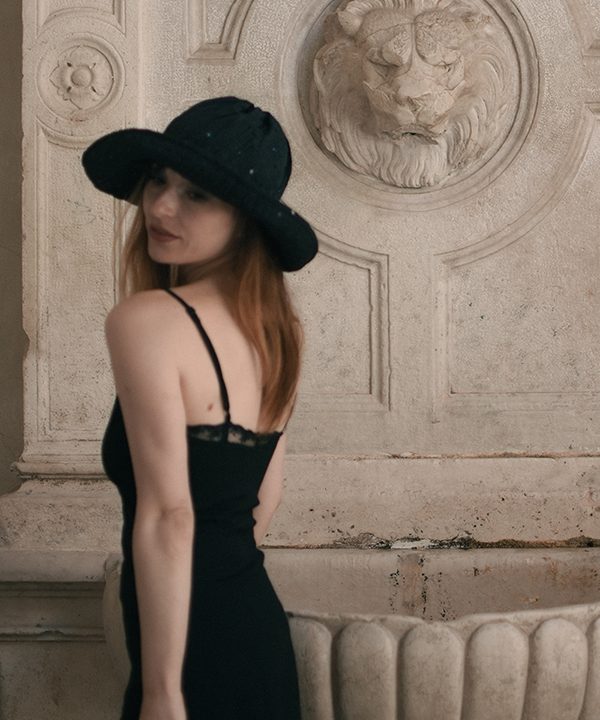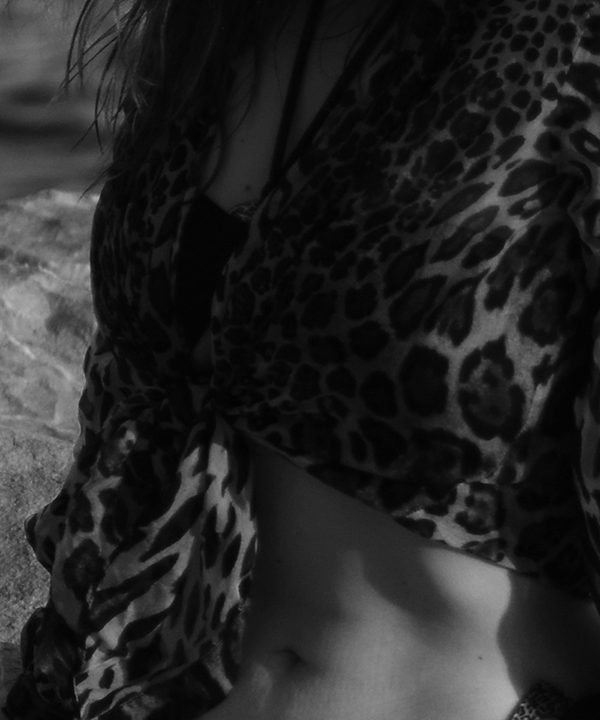
Where Freedom Begins
April 29, 2025
The Ones That Almost Were
June 4, 2025

When I think about how it all begins, I usually return to a memory that remains crystal clear in my mind—as if it were filmed. A recalled instant from a night spent alone in a hotel lobby in autumnal Vienna, where I was, by merging illusion with hope, sketching the blueprint of what I then called my future.
In that youthful joyfulness, I was guided by the dream of freedom—not the vague, performative kind, but a quiet liberation from everything and everyone. The kind of life that belongs only to me and no one else. The kind of mind that sits above expectations and passivity. I sensed a personality so fully herself that she left no space for dependence. And in all my snobbism, that was the kind of luxury that interested me.
Luxury, as I understand it, is the legacy of perfection—the pursuit of unique excellence in quality, the worship of individuality whispered across one or many narratives. It is never performative. It is what truly belongs to you when no one is watching.
In objects—like alta sartoria or fine jewelry—its value lies in form and standard more than in display. As has been said, real opulence is the quiet kind. In the context of life, it is the tranquility and charm of moments spent alone. Of those fragments—like the Viennese interlude from this essay—where you belong entirely to yourself, where no one interrupts, and you are free (truly free) to choose your direction, even if no one else understands the logic of your path.
As Walter Benjamin once reflected, the flâneur is not merely a wanderer of cities, but a collector of meaning in solitude. Vienna invites this kind of presence—not noisy, not rushed, but deliberate. It reminds you that depth is not necessarily seen, but felt. In a world that applauds immediacy, Vienna teaches the art of delay. And in that delay, something ancient is preserved: the privilege of thought before expression, of elegance before reaction.
That is what I like about Vienna—it has always inspired me to belong to myself without asking for approval or permission to be. It’s the kind of place that suggests, gently, that no one is watching. And in that absence, you are free to build your legacy in silence. To explore. To make memories and secrets that only you will know. And, more importantly, it will always be there—to welcome you back when you need quiet halls that echo your mind.
It lives between past and future, holding the heritage of its cultural impact while preparing the stage for a new kind of quality. Yet, it doesn’t allow for pause. Vienna doesn’t stagnate—it listens, waits, and moves quietly forward. Just like those who carry their elegance within.
And those who walk through its golden halls with quiet intent understand: Vienna doesn’t wait to be seen—it waits to see if you are ready to be.
Quando penso a come tutto abbia inizio, di solito ritorno a un ricordo che rimane cristallino nella mia mente—come se fosse stato filmato. Un istante rievocato, di una notte trascorsa da sola nella hall di un hotel nella Vienna autunnale, mentre, fondendo illusioni e speranze, disegnavo lo schizzo di quello che allora chiamavo il mio futuro.
In quella gioia giovanile, ero guidata dal sogno della libertà—non quella vaga, performativa, ma una liberazione silenziosa da tutto e da tutti. Quel tipo di vita che appartiene solo a me e a nessun altro. Quel tipo di mente che si colloca al di sopra delle aspettative e della passività. Avvertivo una personalità talmente compiuta, da non lasciare spazio alla dipendenza. E, in tutto il mio snobismo, era proprio quel tipo di lusso ad affascinarmi.
Il lusso, per come lo intendo io, è l’eredità della perfezione—la ricerca di un’eccellenza unica nella qualità, la venerazione dell’individualità sussurrata attraverso una o molte narrazioni. Non è mai performativo. È ciò che veramente ti appartiene quando nessuno ti osserva.
Negli oggetti—come l’alta sartoria o la gioielleria d’arte—il suo valore risiede più nella forma e nello standard che nell’ostentazione. Come è stato detto, la vera opulenza è quella silenziosa. Nel contesto della vita, è la tranquillità e il fascino dei momenti trascorsi da soli. Di quei frammenti—come l’interludio viennese di questo testo—nei quali appartieni interamente a te stessa, nessuno ti interrompe, e sei libera (veramente libera) di scegliere la tua direzione, anche quando nessun altro comprende il senso delle tue decisioni.
Come rifletteva Walter Benjamin, il flâneur non è semplicemente un vagabondo urbano, ma un collezionista di significati nella solitudine. Vienna invita proprio questo tipo di presenza—non rumorosa, non frettolosa, ma deliberata. Ricorda che la profondità non è necessariamente visibile, ma percepibile. In un mondo che applaude l’immediatezza, Vienna insegna l’arte dell’attesa. E in quell’attesa si conserva qualcosa di antico: il privilegio del pensiero prima dell’espressione, dell’eleganza prima della reazione.
È questo che amo di Vienna—mi ha sempre ispirata a appartenere a me stessa, senza chiedere approvazione o permesso per esistere. È quel tipo di luogo che, con discrezione, suggerisce che nessuno sta guardando. E in quell’assenza, sei libera di costruire la tua eredità nel silenzio. Di esplorare. Di creare ricordi e segreti che solo tu conoscerai. E, soprattutto, sarà sempre lì—ad accoglierti, quando avrai bisogno di sale tranquille che risuonano della tua mente.
Vive tra passato e futuro, custodendo l’eredità del suo impatto culturale, mentre prepara il palcoscenico per una nuova forma di qualità. Eppure, non permette la stasi. Vienna non si ferma—ascolta, attende, e avanza silenziosamente. Proprio come coloro che portano l’eleganza dentro di sé.
E chi attraversa i suoi saloni dorati con intenzione silenziosa lo sa: Vienna non aspetta di essere vista—attende di vedere se sei pronta a esserlo.



























